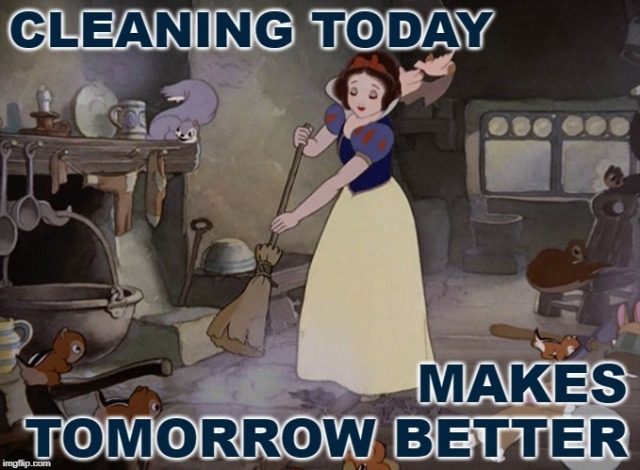
If a child is playing by themselves, it doesn’t mean they’re alone...
I’m not trying to set the scene of a horror movie here, I just believe that your own imagination and creativity can be equivalent if not more powerful than being in a room full of people.
This is because when children are playing in an appropriate and healthy environment for their developmental stage, they are free to explore and discover things for themselves through play.
For example if a 3 year old is free to roam around a garden they will discover different bugs and plants and therefore different textures, patterns and sounds.
When I talk about allowing children to play independently, I am not talking about sitting them in front of the TV…
Unwrap that cotton wool and let them explore!
I admit that TV can have great benefits in terms of education and entertainment; fuelling and encouraging children’s future play opportunities, but unless it is interactive, it doesn’t require them to truly play…therefore I’m not a fan.
As a child I would be sent to my bedroom if I was ‘naughty’.
Big mistake!
I loved being in my bedroom because a lot of my toys were there. I would happily stay in there and entertain myself for hours through independent play.
I had books, Barbie’s, cuddly toys, octagons, Lego, notebooks and pens and at one time or another, a hamster too…my entertainment was endless.
However, I was also sometimes sent to the bottom step on the stairs, ‘the naughty step’…that wasn’t fun.
I think maybe my Mum would choose my bedroom if it was her who was becoming short tempered and needed time to herself.
This is perfectly fine and happens to everyone.
You have to use your own judgement in the situation you’re in and know that no one is perfect and that perfect parenting simply doesn’t exist.

The best thing you can do for a child is listen to them.
If a child wants to play independently, let them!
They know their own play needs better than anyone. If they feel like being in a quiet room alone, that may be because they’re feeling pressured or stressed or tired and need time by themselves to relax and restore themselves.
Let’s get into the benefits of children playing solo!

#1 – Independence
A benefit of playing independently is independence? What?! Obviously.
I know this seems like a cop out and an obvious benefit of independent play but it’s so important!
Children need to become comfortable with being alone.
I believe encouraging independence and self-awareness in young children is vital because with this, children are given the freedom to be in control of themselves, how they learn and who they become as people.
It is because of this, that if I was to give one piece of advice to anyone having a conversation with a child, it would be to aim to have the child walk away from you knowing
they have a voice that matters, to listen to others, but question ignorance.
Through independent play children get the independence they crave.
If you have ever watched a child play independently you will know what I mean when I say that they are literally small adults, but with one difference…
They are loving it!
They love doing things for themselves, learning from mistakes and celebrating small victories with pride.
It’s a joy to watch.
The small victories children love to celebrate will snowball into bigger victories that make up the foundation of who they are and what they do.
Being able to make their own decisions is a fundamental human right and as long as it’s safe, that right should not be taken away from anyone.
When a child is comfortable making their own decisions, they open themselves up to try new things and further their play, and therefore learning.
I genuinely believe that anyone who does themselves or a child ‘a favour’ by pouring the drink for them, because it’s quicker or saves making a mess, they are doing that child a huge injustice.
That adult is depriving that child of their independence, and in my opinion, they need to rearrange their priorities.

#2 – Imagination
Your imagination is your most powerful asset when it comes to play.
Anything is possible.
When children play alone there is no fear of judgment or dismissal. They are free to be whoever they want to be, do whatever they want to do and be as creative as they can.
When children play independently their imagination takes over and they will create things and scenarios to challenge themselves and discover new things.
Through this their imagination will grow and expand as they go on a journey of self-discovery while experimenting with the different spaces they are in.
With a cardboard box you have a car, spaceship, dinner table, office desk, cat basket, cauldron…
with a blanket you have a cape, dress, door, magicians reveler, magic carpet, picnic blanket, rope, headdress
…you get the idea.
Money is not an issue.
The only thing a child NEEDS to play is freedom and a few household objects to work with… they’ll do the rest.
Independent play is also a great way for children to get to know themselves; what they like and dislike.
Because as you know, you are the only person you can’t run away from.

#3 – Self-direction
Self-direction in play and therefor life, is vital.
You are in control of yourself and what you do.
If you’re passionate about something and believe in yourself, you can do it!
Self-direction is learned in childhood while playing independently.
You are the sole decision maker, your imagination is limitless and your only limit.
When you are alone no one is going to make you do something you don’t want to do or distract you from the play you’re trying to focus on.
You’re free to change course at any given moment, to try different things and methods without the influence of anyone else and the play needs that they have.
When someone asks me ‘Why’ I did something my favourite answer is “Because I wanted to” or “Because I felt like it”.
True, I would then elaborate, but I think it is important to do things because you have a genuine interest or spontaneous desire to do so.
If you do something because of a genuine interest you will get a sense of joy from the experience regardless of the outcome.
The process of ridding yourself of ignorance is fun.
This can only be done organically if you are in control of your own play and dictate what you do and how you do it.
You can also practice self-direction while playing one-to-one or in a group, however true self-direction isn’t influenced by anyone else and in a social situation you are naturally influenced by others.
This also applies to environment, children are going to be influenced by the environment they play in, but they control how you manipulate the space they’re in.

#4 – Self-reliance
Self-reliance and self-direction may seem similar, although they are actually very different.
Self-direction is related to the physical act of playing, whereas self-reliance is an emotional stability.
They each go hand in hand because when playing independently children are self-directing their play and therefore also being self-reliant.
It’s just you, yourself and your imagination to flourish as you see fit.
Having the emotional stability to be and play alone is one that comes naturally if you are given the opportunity to play independently as a child.
Without this opportunity or encouragement you are likely to become reliant on others and lack the know how to relish in your own creativity and be self-fulfilling as an adult.
Only having yourself to rely on makes play both simple and difficult.
-It makes it simple because there’s no argument or differing opinions.
-It makes it difficult because it’s all on you, and this can be overwhelming.
This is especially overwhelming to a child who is used to having their parent or sibling constantly by their side.
Developing self-reliance early can also help prepare children for their transition into school life.
As you know, children won’t always have a choice: they will sometimes have to work (play!) independently.
Self-direction, reliance and reflection all accumulate to form a child who is not afraid to fail, and that is the greatest gift of all because with failure comes knowledge.

#5 – Peace and quiet
Everyone needs time to themselves sometimes just to get some peace and quiet.
Children are no different.
They take in vast amounts of information all day every day and everyone needs time to relax in a calm, peaceful environment to absorb.
Children are often thought of as just ‘playing all day’, forgetting that…
As children play they are working!
Children are told what to do.
Often as a teaching mechanism.
However this, in my opinion, should not be constant. Children should be given time to make their own decisions and be their own boss and relax.
They are not only getting to know the world and the way it works, but themselves and how they fit into it.
Playing with something familiar or practicing something they already know during independent play will mean they can refocus. This will give them more drive and energy to go back and learn new things as a result.
As an adult you know that you only have so much steam and after a long hard week you have to take time to yourself. If it’s all go go go, you will burn out and your work will suffer.
The main point I want to make here is that children are no different from adults, it’s just that adults have a need to justify why they do everything.

#6 – Regulates Emotions
At some point everyone will find themselves in a situation where they feel angry, frustrated or on a positive note, ecstatic!
We then have the challenge of dealing with that emotion and asking ourselves how we should process it in a sufficient and healthy manner.
Finding a way to deal with these emotions or overcoming them is difficult, but through independent play children are given the space to do so.
This type of play regulates their emotions because there isn’t anyone there to dramatize it or diminish it.
The process children go through when these emotions arise, when they are alone, makes them easier to deal with over time.
They won’t have a choice but to practice personal patience.
This patience they learn for themselves will help them to be patient with others in the future.
Knowing how strong emotions can make you feel and can make you say and do things you wouldn’t usually do, can help children learn empathy.
This is turn may help them socially because they will show and teach empathy which is key in creating friendships with your peers, as well as connecting with siblings and other family members.
So basically it’s just a really cool and useful skill which makes you a better person to be around as well as making other people more bearable to be around.

#7 – Self-reflection
Self-reflection will occur naturally during independent play because nobody else is there to ask ‘how could it have gone better?’, ‘what could you do to improve next time?’ or ‘what went wrong?’
Humans are naturally inquisitive and children will ask themselves these questions without realising it throughout their play.
This self-reflection is beneficial because we all constantly make mistakes (yes, even you!).
Reflecting and bettering yourself emotionally and in your learning, for your own understanding, is a beautiful thing.
It is through self reflection that we can be truly happy with who we are and what we are doing, as well as being a key role in developing and giving children the ambition and thrive to improve and develop their skills.
Be the best you you can be!
#8 – The inner scientist
Given the time to play alone, chidren will bring out the inner scientist that lives within us all.
We all have an inherent thirst for knowledge and the only way to find things out for yourself is to experiment.
Not only is this the natural way we learn but it is one of the most effective.
If we go through the trials and tribulations to find out information for ourselves, we will be able to recall that information more easily.
I believe this is because of the feeling of pride we associate with the challenge that we have overcome in gaining the knowledge.
To clearly understand and take on board what we are learning, I believe that we should each use our own method of play as we see fit.
This method may change from day to day, or even hour to hour. Whatever play feels natural to you will most likely be the most effective for your learning and happiness (that’s the most important).
The alternative to this is just sitting at a desk being told information, which regrettably is how a large portion of most education systems operate…

#9 – Problem solving
#8 and #9 go hand in hand but ‘#10 Benefits of Independent play’ sounds better than #9.
When in scientist mode, children will become excellent problem solvers. This is, after all, what experimentation is all about; you have a problem, you do tests, you fail, you do more tests in different ways and keep going until you find a solution.
This method of learning is used throughout life and without alone time during childhood it may be more difficult to harness that “I can do it!” way of thinking, which with perseverance will turn into “I DID IT!”
Playing independently means children will have the opportunity to take in what they have previously learnt and practice.
Practice makes perfect and cliché’s are cliché’s for a reason.
Becoming a better learner is the best thing you can strive to be. If you can self-teach you have a gift that is invaluable.
It is during independent play that children are totally reliant on their own perseverance and resilience.
Through trial and error children learn.

#10 – Confidence
It is due to the other 9 benefits of independent play that confidence is also a benefit.
Being independent, self-reliant and directed, imaginative etc. gives you confidence. With this confidence you have the drive to continue to explore, discover and learn new things all the time.
The concept of confidence is strange to a child because they don’t know anything different from what they have personally experienced.
If a child is able to speak their mind and play freely, they will only know confidence.
However if I child is not allowed to speak their mind and unable to play in their own way without intervention, they only know dictatorship.
This sounds harsh and I know it isn’t this simple, but I feel very strongly about allowing children to find themselves and be themselves without any fear of judgement.
Tackling problems face on helps cognitive development and bypasses the need to ask for help when a problem is seemingly in their way.
The sense of self-fulfilment this creates is a powerful tool in building and maintaining a child’s confidence.
Why would I ask for help if I can do it myself?

Wrap it up!
Everybody needs to be selfish sometimes and concentrate on their own needs.
I loved playing independently when I was a child (and still do) because I’m in charge of how my play unfolds.
When playing with my siblings or friends this isn’t always the case.
Of course, regardless of the benefits, a child nor you can meet all your needs by playing independently, a healthy mix is ideal.
Luckily there are just as many benefits of children playing in a group or one-to-one as there are for them playing independently…
Next week I will be discussing the benefits of playing in a group!
I hope you enjoyed reading this post, please share it with like-minded people and ask any questions you may have in the comments.
This weekend I had some well deserved chill time! I watched Netflix and did odd jobs around my apartment.
Ever since I was a little girl I have always pretended to be Snow White when I’m cleaning!
It just makes it more fun!

(If not Snow White, then Marry Poppins)
How did you play today?
- Play memes!
- #5 Reasons Children Need To Experiment With Risk During Play
- #10 Advantages Of Competitive Play
- #9 Benefits Of Children Playing In Groups
- #10 Benefits Of Children Playing Independently
https://www.facebook.com/Playismagic/
